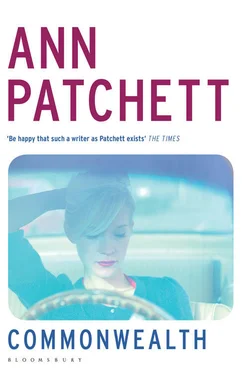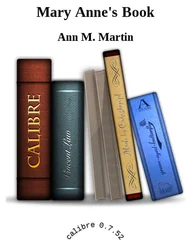“I want to go!” Albie said.
Franny shook her head. “Ernestine told us we had to stay together.”
They waited until he fell asleep. It never took that long. Cal carried Albie down to the laundry room and left him under a pile of towels on the floor. It was Sunday and Ernestine was making a big supper. She never did laundry on Sunday.
And now twenty years later here was Albie in the actress’s summer house, having read about that day he had largely slept through in a novel written by someone he’d never met. Franny shook her head. Her hands were cold. She had never been so cold before. “I’m sorry,” she said. The words came without volume and so she said them again. “I know that isn’t worth anything but I’m sorry. I made a terrible mistake.”
“How did you make a mistake?” Leo said. He reached into the box and took out the bottle of Beefeater. “I’m going to have a drink. Would anyone else like a drink?”
“Did you think I was never going to see it?” Albie asked. “I mean, maybe that was a good guess. It took me long enough.”
“I was trying to explain to him before you got here,” Leo said, pouring some gin in a glass. “Writers get their inspirations from a lot of places. It’s never any one thing.”
Franny looked at Leo, willing him to pick up his glass and go back out to the porch to smoke with his guests. “Just give us a minute,” she said to him. “This isn’t about you.”
“Of course it’s about me,” Leo said. “It’s my book.”
“I still don’t understand this,” Albie said, pointing at Franny and then at Leo. “How did he wind up with my life?”
“It isn’t your life,” Leo said. “That’s what I’m trying to explain. It’s my imagination.”
Albie swung around like a whip, his hands coming up to Leo’s shoulders, pushing him back. Leo, startled, dropped his glass on the floor, and for a moment the room was suffused with the clean smell of gin.
“You don’t understand why I’m here, do you?” Albie said. “You have no idea how hard I’m trying not to kill you. I really might. And if you made me up then you’ll understand just how little there is at stake for me here.”
There was a clear case for stepping towards Leo then, for putting her hands on Leo’s arm, but Franny turned to Albie instead. Albie was the one she had wronged. She and Leo had wronged him together.
“Listen to me, let’s go and talk,” she said to Albie. “Come outside and talk to me.”
Leo stumbled back as if struck, his face flushed. Leo — shorter, heavier, more than twice Albie’s age — would later swear there had been a blow. The highball glass rolled past his feet, miraculously unbroken. “I’m calling the police,” he said. He could hear the unevenness in his own breathing.
“Nobody’s calling the police,” Franny said.
“What in the hell are you talking about?” Leo said.
Marisol came in the kitchen through the swinging door, Eric behind her. “Franny, where are my lobsters?” she said.
Franny couldn’t think of what she was talking about at first or why she was even still in the house, but then she remembered. “Go,” she said. She kept her eyes on Albie.
“Do you even know what lobsters cost?”
Eric touched his wife’s shoulder. “Come back to the living room,” he said. “They’ve got company.”
“We’re the company!” Marisol had put on a silk shift dress of emerald green, a flat gold necklace. The Hollingers had come and she was dressed for dinner. Only Hollinger was a bigger name on the marquee than Posen, and some might disagree with that. Hollinger had been more consistent in his career, he’d had the bigger wins. Dinner, unassembled, was on the table in the boxes, in the shopping bags. “Jonas told me you put them in the car. Was something wrong with them?”
Albie turned to Franny. “Do you work for them?”
Franny took her hand off Albie’s arm and put her hand in his hand instead. “We have to go.”
“Who is this?” Marisol said. Marisol, who wasn’t part of anything, who had never been invited.
“This is my brother,” Franny said.
“He is not your goddamn brother,” Leo said, his voice loud enough to go through the windows and out across the lawns.
Franny had made a mistake when she’d left the house that morning without taking her purse and she did not make the mistake again. “Stay here,” she said to Leo. “Everything’s going to be fine.”
Albie picked up the bottle of gin.
“You’re not leaving with him,” Leo said.
“If I don’t leave here with him I’m going to invite him to dinner. I’m going to put him upstairs in the guest room, okay?”
“I’ll tell you what,” Eric said. “Why don’t we take some drinks out to our guests? Marisol, you get the corkscrew and some glasses. Maybe we should all sit down and have a drink. You’ve got the gin.” Eric nodded at Albie, then he turned to Franny. “The Hollingers are here. They came while you were in town. Just come out and say hello.”
Eric was trying to turn the evening back into a dinner party. It occurred to Franny then that of course he wouldn’t know who Albie was, he wouldn’t know who she was either, other than Leo’s girlfriend. Because when Leo called her his inspiration, and he always did, no one thought he meant it literally. The story of two couples moving in next door to each other, their awful children, that was nothing more than the plot of a novel as far as Eric was concerned. Franny wanted to go to Leo, to reassure him, but Marisol had opened the door from the kitchen. Everyone could hear the voices coming in from the front hallway, so many voices! Hello! Hello! the sound of car doors, of laughter, the sound of Ariel’s voice calling out for her father.
* * *
If Beverly or Bert were to tell the story now, they would say they divorced after Cal died. And of course that was true, they had, but in this instance the word “after” would be misleading. It linked together the death and the divorce as if they were cause and effect, as if Beverly and Bert were one of those couples who, upon a child’s death, are led down such separate paths of grief that they can no longer find their way back to one another. This was not the case.
Bert blamed Beverly for leaving the six children alone on the farm with Ernestine and his parents, for not telling anyone she was taking his mother’s car into Charlottesville to sit through two back-to-back showings of Harry & Tonto . (She hadn’t planned to see it twice, but the theater was so empty and quiet and cool. She had cried at the end of the picture and all through the credits, and rather than walk into the lobby with her mascara running she just decided to stay where she was.) Did he really think she supervised the children every minute? Did he think that had she stayed home that afternoon, after reading another book up in their room, another magazine, taking one more nap, after she had officially died of boredom she might have gone with them to the barn and curried the horses? The truth was she left the children alone in Arlington too, she left them in order to preserve her sanity. At least at the farm there was adult supervision. Did his parents bear no responsibility for what happened on their property? And what about Ernestine? Beverly had left the children in Ernestine’s care even if she hadn’t told Ernestine that’s what she was doing. Ernestine had more parental sense than Beverly and Bert and Bert’s parents all combined, and Ernestine thought it was fine for them to walk the half a mile to the barn.
Bert should not have insisted that Beverly and the children stay at his parents’ house in the country for the week while he took the station wagon back to Arlington for work. If he thought that the children needed an escort to the barn then he should have stuck around and escorted them himself. Beverly didn’t want to be a guest in his parents’ house. They were forever asking the children about their wonderful mother— How’s Teresa? What’s Teresa doing now? I hope your mother knows she’s always welcome to come and stay with us.
Читать дальше
